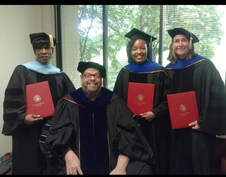Open-ended questions/tasks are just one example of not only differentiated instruction, but this instructional strategy is also a way to challenge students who work at a higher level in math. Under this week's Intentional Toolkit I share a great article that talks about how one 7th grade teacher opened a closed math task and made it meaningful for every student. This article can support your work with students in grades K-12. As always, I hope you find this resource useful.
As my work with the teacher and her students in this coaching cycle nears an end, I'm encouraged and even inspired by the impact that this targeted instruction is having on this group of learners. The value of effective instruction supports all students, especially when you are teaching at the Top of the Class! Until next time, go out there and be GREAT!




 RSS Feed
RSS Feed
